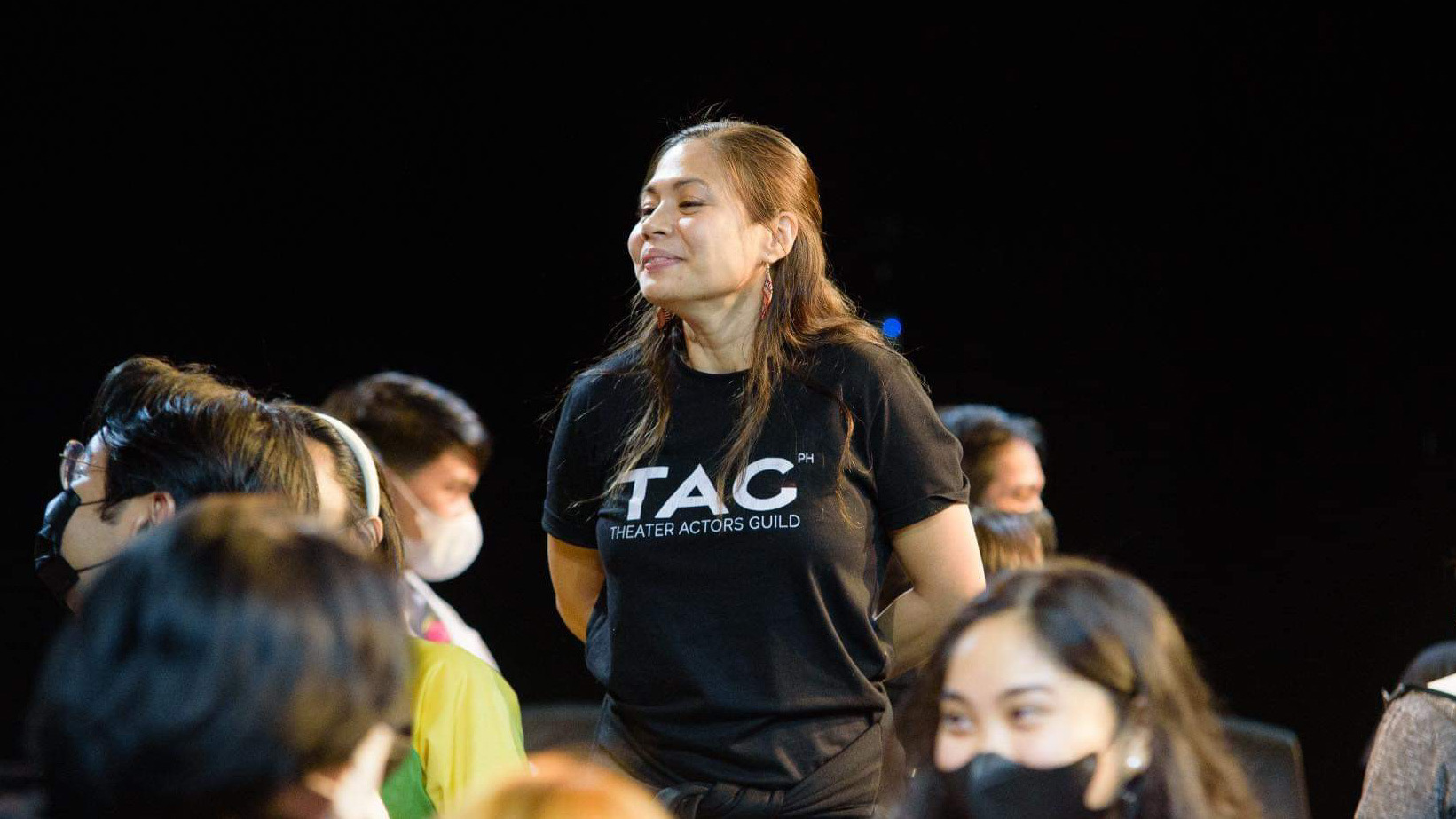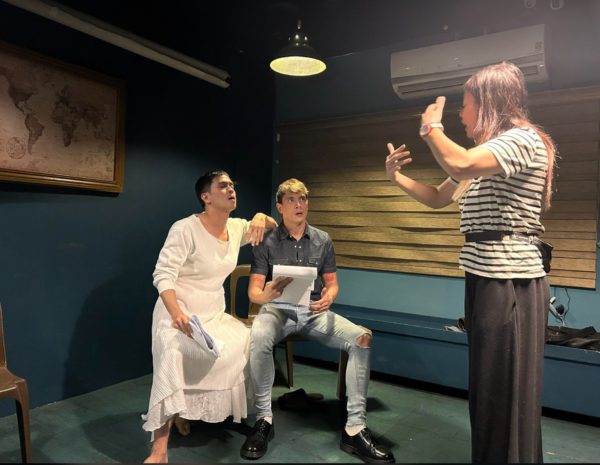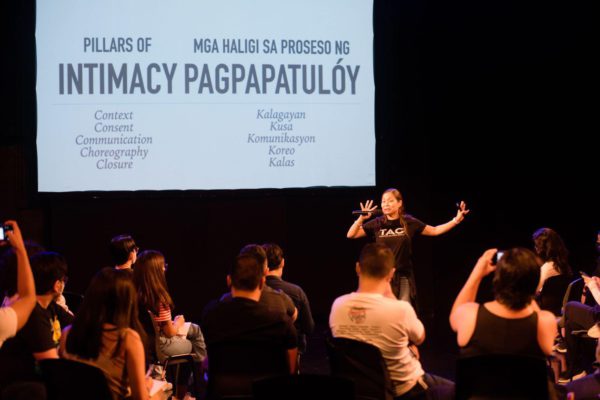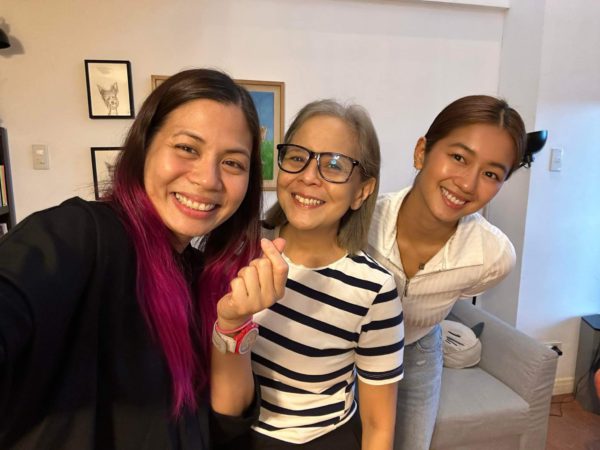
Consent in PH Theater: The Intimacy Director’s Role Post-#MeToo
“Intimacy is cultural.” – Theater actor and director Missy Maramara talks about her new role in the theater and how important this is in a post-#MeToo world.
Since the #MeToo movement gained widespread attention in 2017, there has been a heightened and refined focus on issues related to consent. Organizations and institutions across the globe have become more conscious and proactive in addressing potential harassment and abuse in various sectors, including the theater.
Theater actor and director Missy Maramara hopes to help create more safe spaces in Philippine theater. “Because of the #MeToo movement, there came about a formalization of the position of Intimacy Coordinator in film and Intimacy Director in Theater,” she shares. “They do the same job essentially but of course since the media is different, they have specific requirements. Think of it as fight choreographer. In film, it’s a stunt coordinator, and in theater it’s a fight director. That’s where they got the terms.”
The employment of intimacy directors and coordinators even in the West has only gained significant attention in the wake of the movement. Maramara shares that it was because “…a lot of actors get abused, by producers, directors, because there’s a lot of power play involved. So when the #MeToo happened, that came to the forefront of everyone’s mind.”
There are different organizations devoted to this– IDC (Intimacy Directors and Coordinators) in New York gives certification for both intimacy direction and coordination, IPA (Intimacy Professionals Association) in Los Angeles certifies for intimacy coordination in TV and film, and TIE (Theatrical Intimacy Education) in New York specializes in researching, developing, and teaching best practices for staging theatrical intimacy. Maramara is currently on level 4 out of 4 in intimacy direction for IDC, level 3 in intimacy coordination in IDC, and has been fully certified in IPA.
When does an intimacy director specifically come in during a theater production? “Top of mind is if there’s sex or nudity or intimate touching, even proximity. Anything that has to do with that kind of material,” she says.
Maramara has started practicing intimacy direction with a number of productions– Tanghalang Ateneo’s Tartuffe and Ardor, Mad Child Productions’ Ang Kudegra ng Dalawang Bakla starring Topper Fabregas and Jake Cuenca, and CAST PH’s Uncle Jane, where she also played the titular role. She has also practiced intimacy coordination with a number of films– the 2023 film A Very Good Girl starring Dolly De Leon and Kathryn Bernardo, the QCShorts film Animal Lovers, and a number of films that have yet to be released.

Maramara intimacy directing Iago Guballa’s Kudegra ng Dalawang Bakla directed by Zoë de Ocampo for Mad Child Productions featuring Topper Fabregas and Jake Cuenca
“I think budget-wise, it’s still not a priority of theater productions here in the Philippines. However, there is already movement, like Dulaang UP, Tanghalang Ateneo. Guelan [Luarca, Artistic Director and moderator of Tanghalang Ateneo] said he would love to make sure every production has an intimacy director.” Maramara also gave a workshop on consent and boundaries for Dulaang UP. The group will be able to get in touch with her if the director of the production feels that they need to have that conversation for a particular show.
Has there been any pushback? She says, “My personal experience is, the resistance comes from ‘Ano ba iyan, eh kaya ko naman iyan as a director’. I’m not here to take over the director’s job.”
“That’s the function, to be a resource for that director, and it depends on what he or she wants. If she wants to choreograph it herself, she could. All I could do is, I can talk to the actors with regards to their boundaries, to their levels of consent, because if the director talks directly to the actors, of course the actors will say yes because their job is to please the director. So they’re going to forget about their own boundaries, which is unsustainable in the long-run.”
“The idea is to safeguard the collaborative nature and the consensual base of the work, instead of there being a powerplay that can be harmful in the long-run.”
Maramara says that it was the challenging moments that she herself experienced as an actor that made her want to pursue the profession. “I had to unlearn so much as an artist with my history.”
She candidly shares the trauma she felt when she had to take her clothes off while doing a production before she was ready to do it.
“So anyway I did it, I never regretted it, because I’m from Gen X you know, that’s how we are. We just plow through our trauma, wear it as a badge of honor. I keep telling the older actors I give this workshop to, ‘We are strong in spite of our trauma, not because of our trauma.”
She said she used to be afraid to resist because of the effect that it might have on her career. “Now I know better. I know that I can say, ‘Can I slowly ease into it?’ Now I know to ask first before I audition for a role, ‘What would this role entail? What would you ask of me’?”
“Interesting caveat, I was resisting [the course] in the beginning. I was like, ‘This is bullshit.’ My resistance is key. Why was I not believing in the word consent? Because I didn’t think I had that as an artist. The capability to assert consent, and that’s worrisome noh? And I only truly fully grasped it when I asked my colleagues Ariel Diccion and Ron Capinding, who I grew up with in Tanghalang Ateneo, who are my colleagues in Ateneo, to translate it to Filipino with me.”

Maramara presenting the translation of the Pillars of Intimacy into Filipino by Ron Capinding as intro to the intimacy workshop adapted into Filipino culture with the help of Ariel Diccion; Photo Credit: Jaypee Maristaza
“I gave them the workshop, we discussed the terms, and we figured it out. Now, it makes sense to me. Kasi pwedeng new-colonial iyung approach eh, but no, it’s cultural. Intimacy is cultural.”
She says that the process of giving consent must be akin to how a homeowner lets someone into their home– the visitor would say tao po to identify that they’re human, the homeowner would ask for verification, the visitor would add more details, then they’d enter only after being given consent.
“There is a process to letting someone into your personal space and it should be the same for artists, for actors. You are letting people into your personal space, most times strangers. You’re going to kiss a stranger? Your body’s your personal space.”
How does intimacy direction actually transpire during a production?
“First it starts with the director. I have to ask them what their vision is for the play, for the scene, how they want me to work with them and what they need from me specifically. Once I know what that is, then I talk to the actors. I ask them what their boundaries are separately. After they tell me what their boundaries are, I tell them what the requirements of the scene are, and they can say ‘I’m really really okay to do this’, ‘I’m on the fence with regards to this’, or ‘I really can’t do this’. For example, the director wants full nudity, the actor is okay being topless and not with full frontal, on the fence about butt nudity or rear nudity, for example. So I have to go back to the director and say, ‘These are your actors’ boundaries.”
The director will then have the choice to get another actor if they cannot find a way through it, or retain the actor and work it out by finding a different way to capture the scene. When an agreement is reached, she will then talk to the lights, costumes and make sure the rehearsal space is closed with no phones in sight.
“And having this position frees up the director from having to worry about that. [As a director myself], ang dami daming ibang iniisip!”

Maramara with Dolly De Leon and Kaori Oinuma after coordinating and choreographing their kiss for A Very Good Girl
She shared how she tried to be her own intimacy director with the play she directed for last year’s Virgin Labfest. “My gosh, the cognitive dissonance. As a director, your focus is the story. As an intimacy director, you’re looking at very specific items. I can’t just fixate on that.”
Will actors know what level of intimacy will be required of them even before auditions? “Dapat before auditions, there are pre-productions, the preparation before the actual show. So show me the requirements of your play. I will make sure that in your audition form, it is stated and that they are consenting to the requirements as early as auditions. Like the role is this, it requires, this, this, and this, para walang gulatan.”
What does she hope for theater practitioners? “I would love for students to feel that they have agency and choice. That they also have power. That they don’t have to belly up to the powers that be. They have to be respectful of their elders, of their predecessors, but also of themselves.”
“Respect is a fundamental human right but it’s weaponized in this country because of our colonial history. But that weaponization is really eroding us as a people. What needs to be earned is trust and parang nababaliktad. People feel entitled to other people’s trust. ‘I’m older than you. I’m your director, I’m your teacher. Just trust me and do as I say,.’ rather than, ‘We respect each other. This role has a certain set of requirements that I will fulfill. You’re the actor, you make choices on stage. I’m the director, I will watch you and let you know if it’s working or not in the vision that we both have agreed on’.”


Comments